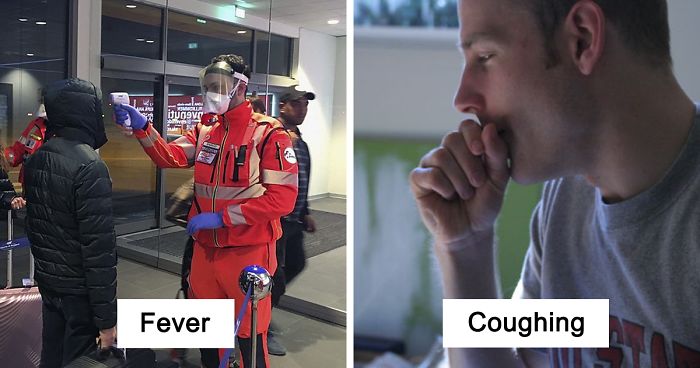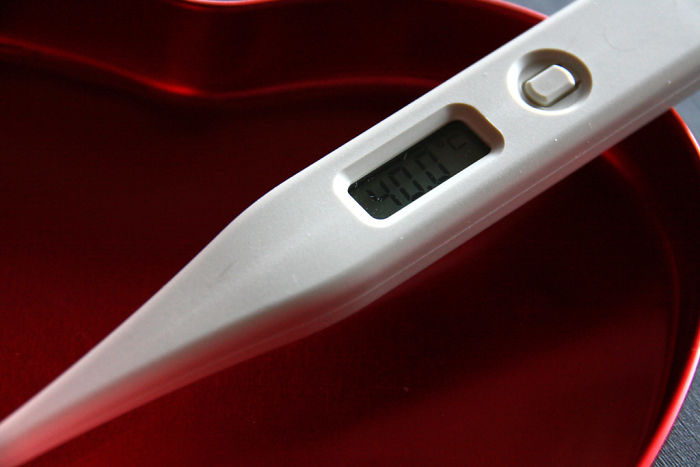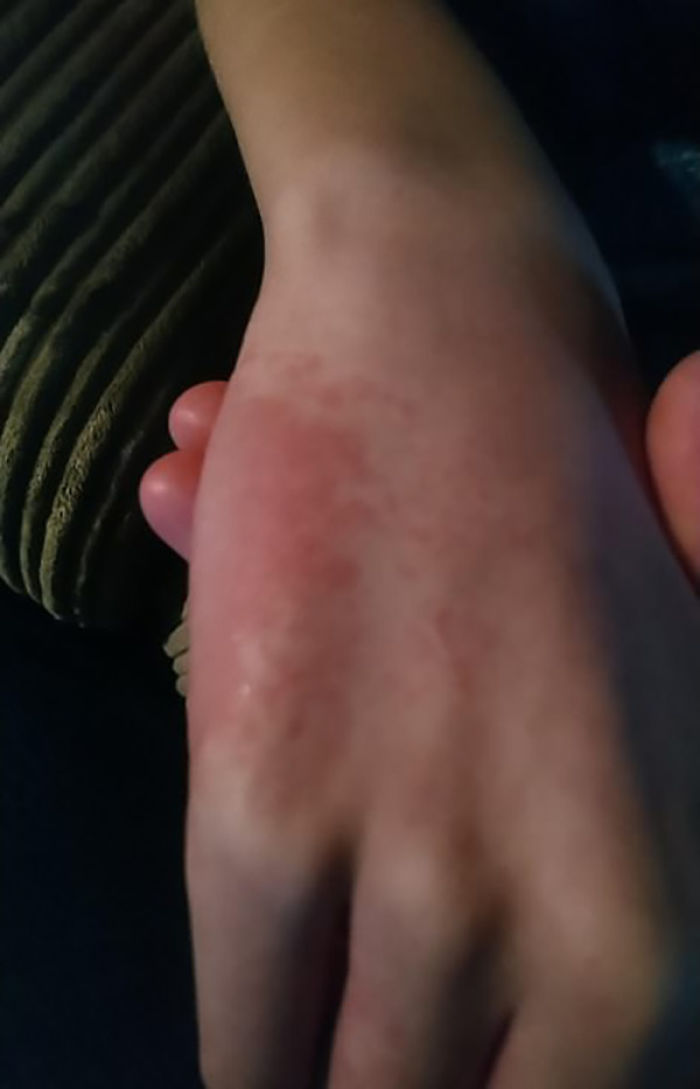With the novel coronavirus raging across the globe for quite a while now, some people are still wondering what symptoms are linked to COVID-19 and should be really watched out for.
Health officials all over the world are constantly updating their official lists, trying to figure out what symptoms are frequent and what symptoms are occurring only in a small handful of people.
While the Centers for Disease Control and Prevention initially only listed coughing, fever, and difficulty breathing as the main symptoms of COVID-19, it has recently added six more symptoms people should be aware of to its official list.
CDC recently expanded its official list of COVID-19 symptoms people should be watching out for
Image credits: TEIA
People with COVID-19 report a wide array and various combinations of symptoms. While the CDC previously only included three main symptoms in its list—cough, shortness of breath or difficulty breathing, and fever, it has now expanded its official list with six more symptoms.
It only listed three main symptoms previously
Image credits: Rebecca Brown
The Centers for Disease Control and Prevention now expanded the list by adding chills, repeated shaking with chills, muscle pain, headache, sore throat, and new loss of taste or smell. The organization notes that cough and shortness of breath appear 2-14 days after getting exposed to the virus, and any other symptoms or combinations of symptoms may follow afterward.
The organization linked the sickness caused by coronavirus to a shortage of breath and difficulty breathing
Image credits: AskDoctorJo
The previous short list of primary symptoms reflected China’s experience with the symptoms of COVID-19. However, the CDC states that the extended list is not comprehensive and people with other symptoms that are not on their list may have COVID-19 as well.
The CDC also considered fever and coughing the main symptoms
Image credits: Yvonne Larsson
The WHO-China Joint Mission on Coronavirus Disease 2019 reports that most infected people in China experienced high fever or dry cough. As many as 87.9% of 56,000 cases confirmed in China until February 20 were observed to have a fever, while 67.7% of the patients had a dry cough.
It has now added six more symptoms to its official list, including chills
Image credits: leonfishman
However, the situation elsewhere in the world may be quite different from what was reported in China. A recent study published in the Journal of the American Medical Association found that among 5,700 patients who were put in hospitals due to COVID-19 in the New York area, only 31% had a fever and were experiencing different symptoms at the time, which were considered uncommon with COVID-19.
People should also watch out for repeated shaking with chills
Image credits: uzi978
A group of doctors from the UK also contributed to the newly expanded list of symptoms with their open letter that presented data from South Korea, Italy, and a few other countries.
As well as muscle pains, previously linked more to the common flu
Image credits: pxhere
They revealed that a significant amount of patients from the countries mentioned were experiencing a loss of taste or smell. Since their report, a lot of people all over the world have reported experiencing the same symptoms.
The CDC also listed headache as an official symptom
Image credits: pexels
Health officials in the US suggest people with a dry cough, shortness of breath, and/or fever should immediately seek medical attention. It’s recommended that health providers report patients with these primary symptoms; however, if they’re not experiencing any of those, they should have at least two symptoms on the expanded CDC list.
As well as sore throat
Image credits: oh_darling
The NHS also warns that there’s a growing concern about inflammation that may be possibly related to the coronavirus. Experts fear various inflammations may be a complication of COVID-19 as a growing number of children are reported to have inflammatory issues with their skin as a result of getting infected with the novel coronavirus.
Some people also experience new loss of smell and taste
Image credits: aquamech-utah
However, the CDC warns that its list is not comprehensive and some people may also experience less common symptoms, such as unusual rashes
75Kviews
Share on FacebookNot sure about you, but i think im getting Covid every time im tired, headache.. turns out it was the second glass of wine i had.
Well, it's virus like the flu so yeah. Except flu won't kill your grandma.
Load More Replies...There is also another possible symptom called COVID toe, where there is discoloration and bruising on the feet and toes.
This comment is hidden. Click here to view.
Load More Replies...Not sure about you, but i think im getting Covid every time im tired, headache.. turns out it was the second glass of wine i had.
Well, it's virus like the flu so yeah. Except flu won't kill your grandma.
Load More Replies...There is also another possible symptom called COVID toe, where there is discoloration and bruising on the feet and toes.
This comment is hidden. Click here to view.
Load More Replies...














36
23